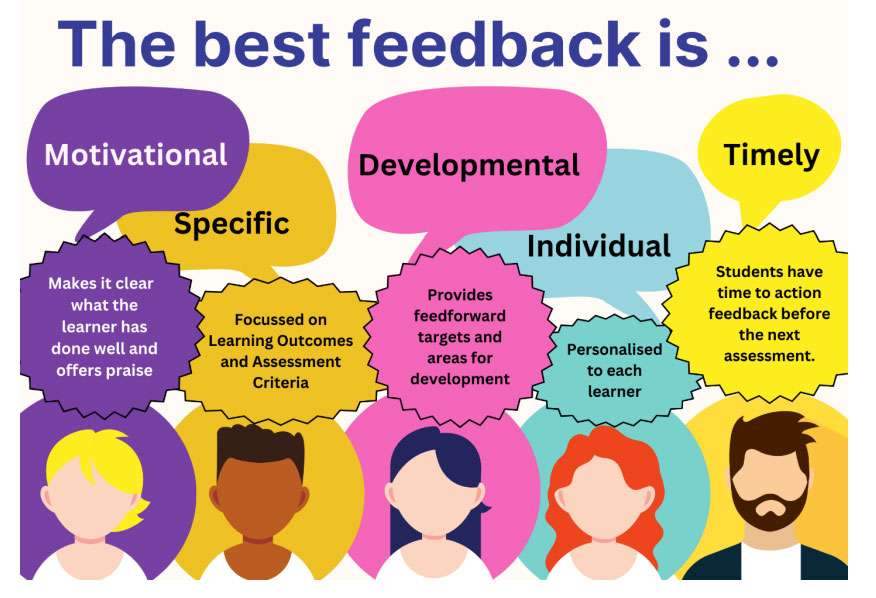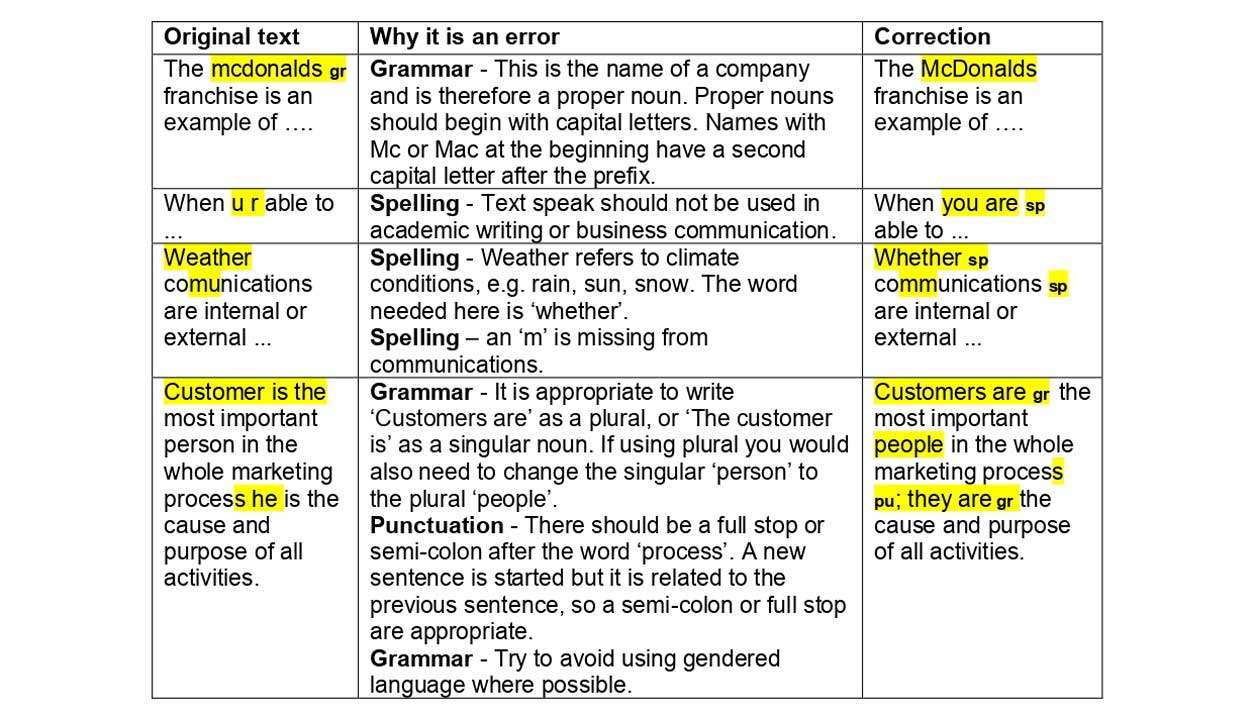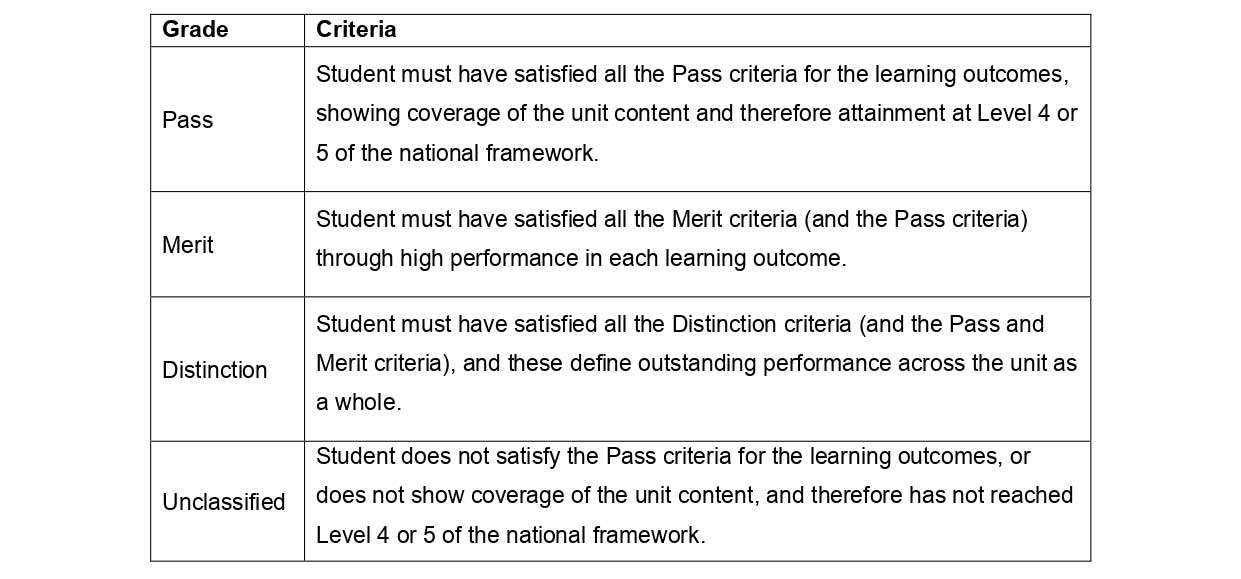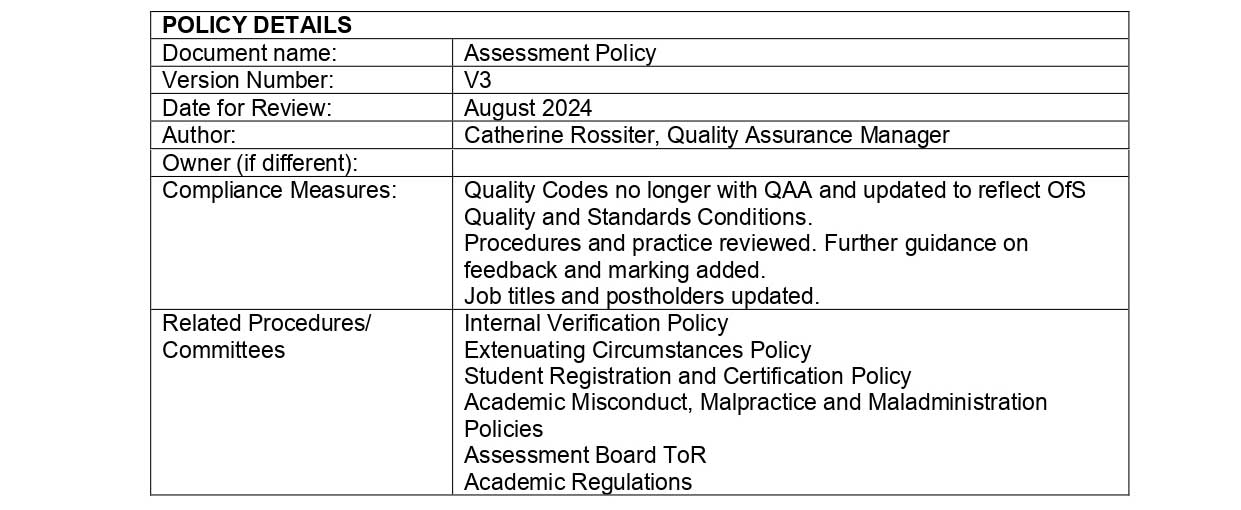1. Introduction
Assessment Policy
To deliver its strategic policy aims of excellence in Curriculum Innovation, Teaching, Learning and Assessment and the Student Experience, Results Consortium Ltd. (thereafter the College) has a policy of planning and implementing student assessment to ensure that academic standards are met, and the value of qualifications awarded is in line with sector-recognised standards and Awarding Body requirements.
Planning and implementation of student assessment is part of the College’s planned
compliance with the Office for Students’ (OfS) Quality and Conditions Standards for maintaining registration with OfS. When planning, setting, assessing and providing feedback/feedforward to students, as described in this document, the following conditions must be met
B1 The provider must ensure that the students registered on each higher education course receive a high-quality academic experience.
B2 The provider must take all reasonable steps to ensure each cohort of students receives resources, support and effective engagement that ensures:
i. a high-quality academic experience
ii. students succeed in and beyond higher education.
B4 The provider must ensure:
a. students are assessed effectively
b. each assessment is valid and reliable
c. awards are credible
d. effective assessment of the English language
B5 The provider must ensure that:
a. standards set reflect applicable sector-recognised standards
b. awards are only granted to students whose knowledge and skills appropriately
reflect sector-recognised standards.
When preparing assessment, reference must be made to the relevant standards documents and Awarding Body assessment strategies.
2. Pearson Awarded Qualifications
2.1 This policy aims:
2.1.1 to ensure that assessment methodology is valid, reliable and does not disadvantage or advantage any group of learners or individuals
2.1.2 to ensure that the assessment procedure is open, fair and free from bias and meets national standards.
2.1.3 to ensure that there is accurate and detailed recording of assessment decisions.
2.2 In order to do this, the College will:
2.2.1 Ensure that students are provided with assignments or other assessment activities that are fit for purpose, and that enable them to produceappropriate evidence.
2.2.2 Produce clear and accurate assessment plans at the start of all programmes
2.2.3 Provide clear, published dates for handout of assignments or other assessment activities and deadlines for submission.
2.2.4 Assess students’ evidence using only the Awarding Body published assessment and grading criteria.
2.2.5 Ensure that assessment decisions are objective and impartial, valid and reliable.
2.2.6 Develop assessment procedures that will minimise the opportunity for academic misconduct, malpractice or maladministration.
2.2.7 Maintain accurate and detailed records of assessment decisions and keep these records for 3 years (Level 3 and below) or for 5 years (Level 4 andabove) after the programme end date.
2.2.8 Maintain a robust and rigorous internal verification procedure
2.2.9 Provide samples for standards verification/external examination as required by the Awarding Organisation.
2.2.10 Monitor standards verification/external examination reports and undertake any remedial action required.
2.2.11 Share good assessment practice between all programme teams
2.2.12 Ensure that assessment methodology and the role of the assessor are understood by all staff.
2.2.13 Provide resources to ensure that assessment can be implemented accurately and appropriately.
3. Procedure for Pearson Awarded Qualifications
3.1 The Academic Board is responsible for implementation and oversight of this
procedure.
3.2 The Principal and Quality Manager will approve the planned programme of
assessment and internal verification to ensure that it meets the requirements of the Awarding Organisation, the programme specification, and, for Level 4 and above, the OfS Quality and Conditions standards, and the Teaching Excellence Framework indicators of excellence.
3.3 The Higher Education Manager is responsible for planning a programme of assessment for a programme of study, ensuring that a suitable Internal Verifier is allocated for each assignment and that accurate assessment information is presented to Assessment Boards.
3.4 Lecturers, Tutors and Assessors are responsible for checking and modifying existing assignment briefs and other assessment activities for each new cohort. At least one opportunity to provide formative feedback to students on an individual basis must be planned. Issue and submission dates must be set to complement the unit delivery format and schedule. Lecturers, Tutors and Assessors are also responsible for providing formative and summative feedback and grades for student work.
3.5 Assessment and Internal Verification Schedule. Following the admission of a
new cohort of students on a programme, the Higher Education Manager in collaboration with Lecturers and the Lead Internal Verifier will agree an assessment schedule and responsibilities. The schedule will be maintained by the Higher Education Manager and will be published to all staff involved in the assessment process.
3.6 Assignment Briefs. All assignment briefs for Pearson programmes will be preparedon the current recognised Pearson Assignment Brief Template, by the appointed unitLecturer. Assignment briefs will map tasks against the specific criteria targeted by the brief and give guidance on the forms of evidence students should provide. Once
a Lecturer has completed an assignment brief it should be passed to the allocated Internal Verifier for verification. Under no circumstances may assignment briefs be shown to students until the internal verification process is complete.
3.7 Assessment Recording and Tracking. Student progress must be tracked using the current College tracking system. Once an Assessment Board has confirmed studentachievement, the College will apply for certification.
3.8 Formative Feedback. Formative feedback will be provided 2 weeks prior to submission date for each student studying a unit. This enables students to revisit work to consolidate a Pass grade or to enhance their work for a higher grade. Feedback should follow recommendations in the graphic below:

3.9 Summative Feedback. For each student, summative assignment feedback showing grade achieved will be completed by the Unit Assessor.
3.9.1 Student assignment evidence submitted must be assessed against the Assessment Criteria for the unit as shown on the assignment brief. A link to the brief should be included in the feedback to support students in making connections to their assignment tasks and instructions.3.9.1 Student assignment evidence submitted must be assessed against the Assessment Criteria for the unit as shown on the assignment brief. A link to the brief should be included in the feedback to support students in making connections to their assignment tasks and instructions.
3.9.2 Assessors should annotate on the student work where the evidence supports their grading decisions against the unit grading criteria.
3.9.3 Spelling, punctuation and grammar should be corrected by making appropriate annotations on students’ work. The first time an error is made in a piece of work, the Assessor should highlight it, using Canvas marking tools, and make the correction. The reason for the correction needs to be explained. The second, and subsequent errors, in the same piece of work should be highlighted only. Some examples are shown below in Table 1:
Table 1: Examples of Corrections to Spelling, Punctuation and Grammar

3.9.4 Mistakes in spelling and grammar should not influence assessment decisions unless:
- the mistakes are so problematic that they undermine evidence of student understanding or use technical language that is incorrect or misleading
- specific assessment criteria require good communication, spelling, punctuation and grammar
- the work is difficult for the reader to make sense of and understand.
If student work lacks the spelling, punctuation and grammar needed to make it understandable, it should not be accepted for marking and should be returned to the student to be corrected. The deadline for correcting the work should be no longer than 3 days from the date on which it was returned to the student.
3.10 Internal Verification of Assessment. Once summative feedback forms for a cohort have been completed, including grades, the Assessor should make the sample on the Internal Verification Schedule available to the Internal Verifier.
3.11 Grading Decisions. All Pearson Higher Education programmes are on the UK Regulated Qualifications Framework (RQF). Each successfully completed unit will be graded as a Pass, Merit or Distinction, see table 2 below:
Table 2: Grading

3.12 Information on the Summative Assessment Process for Students. Assessors
must make students aware that summative assessment decisions published on Canvas are subject to External Examiner and Assessment Board confirmation, therefore, assessors’ grading decisions are provisional.
3.13 Late Submission of Student Assignment Work. Student work that is submitted
after the deadline will be capped at a Pass grade, unless an Extenuating Circumstances form has been submitted by the student before the assessment deadline and accepted by the College.
For exceptional circumstances where the student could not submit on time and was unable to complete an Extenuating Circumstances form, the College can, at its discretion, accept a claim for extenuation after the submission date. An example of these circumstances would be a student having a medical emergency on the day of submission. Evidence of such a situation is required
3.14 Assessment Boards. An Assessment Board usually takes place immediately after
all assessments for a programme of study are completed. The decisions of the Assessment Board will be communicated to students and will be passed to Registry to complete student certification according to the Student Registration and Certification Policy.
3.15 Resubmission of Student Assignment Work. A student who, for the first assessment opportunity, has not achieved a Pass for that unit must undertake a reassessment.
3.15.1 Only one opportunity for reassessment of the unit will be permitted.
3.15.2 Reassessment for coursework, project or portfolio-based assessments wil normally involve reworking of the original task.
3.15.3 For examinations, reassessment will involve completion of a different examination paper from the original.
3.15.6 A student who undertakes a reassessment will have their grade capped at a Pass for that unit.
3.15.7 A student will not be entitled to be reassessed in any component of assessment for which a Pass grade or higher has already been awarded, i.e. students cannot resubmit to achieve a higher grade.
3.16 Procedure for resubmissions. If the Higher Education Manager or Assessment Board authorises a resubmission, the following conditions apply:
3.16.1 There can be no resubmission where a Pass grade in the unit has already been achieved.
3.16.2 The resubmission must be recorded in the relevant assessment documentation.
3.16.3 The student must be given a clear and realistic deadline for resubmission that is consistent across all students granted a resubmission.
3.16.4 Students are normally asked to resubmit work within 15 working days of the student being notified that a resubmission has been authorised.
3.16.5 The resubmission must be undertaken by the student with no further guidance.
3.16.6 The original evidence submitted for the assessment can remain valid and be extended or may need to be replaced partially or in full.
3.16.7 The Higher Education Manager should make arrangements for resubmitting the assessment in such a way that does not adversely affect other assessments and does not give the student an unfair advantage over others.
3.17 Repeat units. The following applies to a student who, for the first assessment opportunity and the resubmission opportunity, still failed to achieve a Pass for a unit:
3.17.1 At the discretion of the Assessment Board, students can be permitted to repeat a unit. In such cases students will be expected to study the unit again with full attendance and make payment of the unit fee.
3.17.2 Units can only be repeated once.
3.17.3 The overall unit grade for a successfully completed repeat unit will be capped at a Pass for that unit.
3.17.4 A student who, for the first assessment opportunity within a repeated unit, has failed to achieve a Pass for that unit, will be expected to undertake a reassessment. This reassessment will be subject to the standard resubmission rules and regulations as stated above.
3.17.5 If a student repeats a unit and still does not achieve a Pass, they may be required to complete a different unit in full. In either instance, the Assessment Board must make sure that the Awarding Body’s regulations and requirements have been met.
3.17.6 All repeat unit assessments should be included in the External Examiner’s Sample.
3.18 Retention of student evidence and assessment records
3.18.1 The evidence and assessment records must be stored safely and securely to ensure they are available for verification by the Awarding Body. Up to date, securely stored assessment records also help to minimise the risk of assessment malpractice.
3.18.2 The College must store all assessment records securely and safely relating to both internally and externally set assessments and maintain records of student achievements that are up to date, regularly reviewed and tracked accurately against national standards. Internal and external assessment records for college and Awarding Body scrutiny must be kept for a minimum of three years following certification. In addition, assessment records must be kept for five years on qualifications at Level 4 and above to satisfy OfS requirements.

